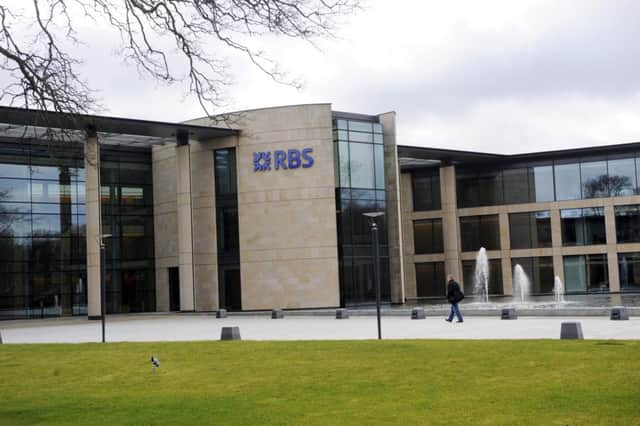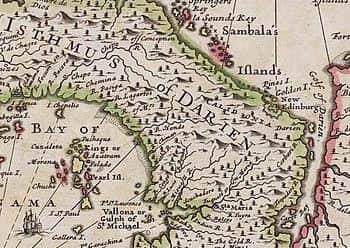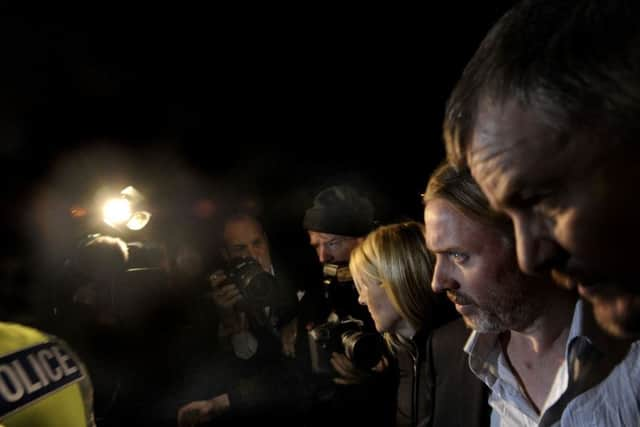Eight of Scotland's most painful financial disasters


The Darien scheme
It cost £400,000 in the late 1600s and the lives of around 2,000 Scots who had sailed to Central America in hopes of creating a new colony in what is now Panama,
It also led to the Union of 1707 with Scotland facing financial ruin after spending one fifth of its wealth on the scheme. English investors had been due to contribute but King William- keen to keep relations sweet with Spain - warned off donors with threats of impeachment.


Advertisement
Hide AdAdvertisement
Hide AdThe scheme was created by Dumfries-born merchant William Paterson, who secured through parliament a monopoly on Scottish trade with Africa and the Indies.
Creating a colony at Darien would allow merchant ships to reach the Pacific more easily, without having to make the perilous journey around Cape Horn or the Cape of Good Hope.
Paterson was amongst the 1,200 Scots on the first expedition to leave Leith on 18 July 1698. Both the manpower and financial commitment was described as “staggering”. They reached “New Caledonia” four months later, built Fort St Andrew and started to work on New Edinburgh.
But a terrible fever spread amongst the Scots with illness fanned by inadequate provisions - English colonies were instructed to withold aid to placate Spain - and a hot and humid climate.


Many died, and in July 1699 the colony was abandoned.
News of the deaths, however, did not reach Scotland before a second expedition of 1,300 settlers departed.
Of the 2,500 settlers who made the journey in total, only a few hundred survived.
Following the 1707 Union, which won support amongst some Scots due to the Darien failure, £398,000 compensation was paid to Scotland. Part of this was distributed through the Equivalent Company - which later became known as the Royal Bank of Scotland.


The Royal Bank of Scotland
In 2008, it was the largest bank in the world but came within hours of running out of money. The failure of RBS - later bailed out by £45m of taxpayer support and several hundred billions of state-backed loans - is considered to be the biggest corporate failures in UK history.
Advertisement
Hide AdAdvertisement
Hide AdThe Financial Services Authority found that the bank’s near collapse was driven by bad decisions, namely by former Chief Executive Fred Goodwin, who bought over parts of Dutch bank ABN Amro for £49bn in 2007, just before the global financial crisis. Fast forward 18 months and the very same bank, posted a loss of £28 billion, the biggest in British corporate history. The taxpayer had to bailout the ailling financial giant to the tune of £45bn.


Overall, the Treasury and the Bank of England provided banks with £350bn in loans and guarantees to stabilise the banking system with HBOS - which includes the Bank of Scotland - also perilously close to collapse.
RBS is still 83 per cent owned by the tax payer.
Rangers FC
Rangers Football Club entered administration on February 14 2014 and so began one of the most damaging episodes in Scottish football.
The club was automatically deducted 10 points with the club, under new owner Charles Green, later placed in the third division following a vote by Scottish Football League members.


Ahead of administration, former owner Craig Whyte - who bought the club and its liabilities for just £1 from Sir David Murray in 2011, said the club had a £10m deficit in running costs.
It then emerged that Whyte borrowed up to £24m against four years of future season ticket revenue from ticketing agency Ticketus.
At the time, the club was also waiting a tax tribunal decision over a disputed bill, plus penalties, totalling £49m.
The club used Employee Benefit Trusts to make payments to players and staff in the form of tax-free loans between 2001 and 2010.
Advertisement
Hide AdAdvertisement
Hide AdThe Court of Session rules last year that the EBTs broke tax rules but liquidators BDO are in the process of appealing this decision.
Last year, six individuals including Craig Whyte and Charles Green were indicted on fraud charges linked to the takeover of the club in 2011.
The Crown has since dropped a number of charges but prosecutors have stated fresh indictments will be raised against Duff and Phelps administrators Paul Clark and David Whitehouse plus Charles Green.
Meanwhile, Rangers are top of the table in the Scottish championship.
Tullis Russell
Paper maker Tullis Russell, of Markinch, Fife, owed more than £50 million when it collapsed with the loss of hundreds of jobs in early 2015.
Even after money due from customers was paid and assets sold, creditors were still to be short some £37.5m, administrators KPMG said.
The employee-owned company collapsed in April after being hit by factors including weak global demand for printed materials, rising raw material costs and strengthening of sterling against the euro.
Those owed money include the company’s 474 employees who were due a total figure of £18.4m – an average of almost £39,000 – including payments for holiday entitlement and redundancy pay.
Advertisement
Hide AdAdvertisement
Hide AdThe firms’ Cheshire-based coating division and its image transfer business based in Ansan, Korea, were not affected by the administration and continue to trade.
Pelamis
Scotland’s ambition to be world leader in marine energy suffered a major blow after the wave power developer collapsed with debts of more than £15m
Scottish Enterprise was the biggest creditor with £12.8m due when the Edinburgh-based firm fell into administration at the end of 2014.
It was estimated that the government agency would only receive around £660,000 after the firm’s assets – including intellectual property connected to its “sea-snake” wave energy device – were estimated to be worth just £836,000.
Unsecured creditors including Edinburgh Council, the universities of Dundee and Edinburgh, Orkney Ferries and PR firm Grayling were reportedly owned some £3.5m after the firm’s collapse.
Intellectual property, patents and some other assets at Pelamis were bought by Highlands and Islands Enterprise (HIE) for an undisclosed sum.
The firm faced a financial crisis after failing to secure additional funding to continue development of its pioneering wave power technology.
Atlantic Telecom
Aberdeen-based Atlantic Telecom was put in administration in October 2001 after debts reached £700m.
Advertisement
Hide AdAdvertisement
Hide AdJust two years earlier, the company had been valued at £2.5bn.
Owner Graham Duncan had been hailed as the bright young thing of the telecoms industry with Marconi buying a 19 per cent share in the company.
Bondholders had called for Atlantic to be wound up after the company’s financial position became known in June 2001.
Around 2,000 business and 10,000 domestic customers faced having their phonelines cut off but a £500,000 deal financed by the Scottish Executive and the Department of Trade and Industry gave account holders three months to find a new supplier;
Duncan was widely perceived as growing his company too aggressively at the height of telecoms boom.
McClure Naismith
More than 40 partners and staff at one of Scotland’s oldest law firms were made redundant after it went into administration in August last year.
A further 80 members of staff at the Glasgow-based firm went to rival firms as work was transferred.
McClure Naismith was founded in Glasgow in 1826, expanding to Edinburgh in 1979 and London 12 years later.
Advertisement
Hide AdAdvertisement
Hide AdThere were 29 partners at the firm, which advised in English and Scots law.
Last year, administrators said the firm owed around £2 million to suppliers, the HMRC and its bank but the full extent of the firm’s debts was likely to be “substantially more” once all dues were accounted for.
Aquarmarine Power
The marine energy sector was dealt a second blow after Edinburgh-based firm Aquamarine Power called in administrators last October.
The company blamed the current economic climate for the decision.
The announcement came shortly after the firm was awarded a £580,000 grant from the European Union to help it accelerate the development of commercial wave energy technology.
It had already built and run two full-scale wave energy converters, called Oysters, at the European Marine Energy Centre in Orkney.
In March last year, it emerged that it had shelved plans to build the world’s first wave energy farm off the west coast of Lewis, for which it had planning permission.
It had attracted around £93 million of investment since its foundation in 2005 but laid off more than half its staff last year after making a £15.7m loss in 2013-14.
Advertisement
Hide AdAdvertisement
Hide AdJames Stephen, from administrators BDO, said the economic climate had “significantly affected” Aquamarine’s business.
A search to find new owners was unsuccessful
Read more: http://www.scotsman.com/sport/football/teams/rangers/charges-dropped-against-duff-phelps-in-rangers-fraud-case-1-4035847#ixzz44OEryXm3
Follow us: @TheScotsman on Twitter | TheScotsmanNewspaper on Facebook